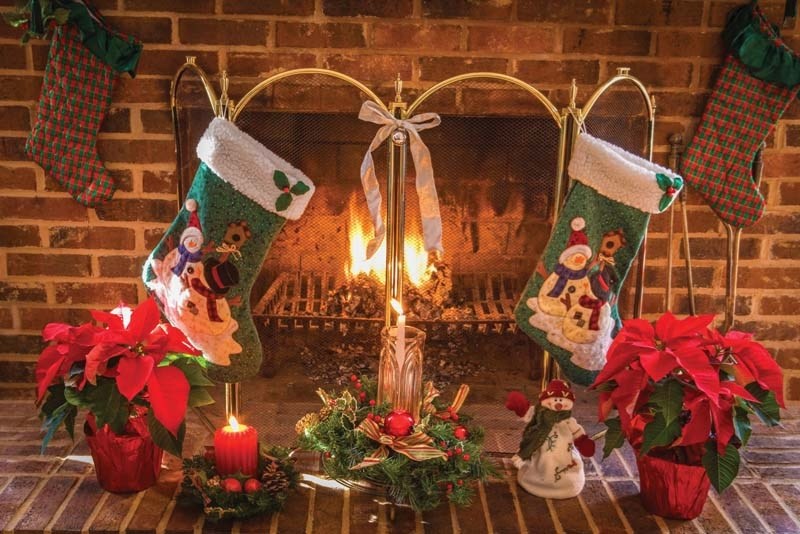A cat’s curious play pushed over the candle jar and set the house on fire.
It’s only one of many stories that fire prevention and safety officer Les David Mroz has to share about Christmas season at St. Albert Fire Services.
In most cases, the night did not end well for either the cat or home, he said, so fire prevention remains important – especially now that warm and colourful lights are meant to scare away the grey, winter gloom.
“I guess the biggest two risks for the Christmas season are candles and Christmas trees that ignite,“ said Mroz. “The bottom line is typically electrical problems with plugging in the lights.”
It’s not only the playful cat or dog that may create a hazard by pushing over a burning candle. Spilled wax is just as flammable, and some candles sit in jars manufactured from inferior glass that could break from too much heat, he said.
With new LED lights and plastic trees amassing throughout Canadian homes, the hazard of burning trees has lessened, he added.
But there are still those who kept the lights of old – incandescent lights and 60 or 100 watt bulbs that cause ignition from heating up and touching dry needles or other flammable materials nearby.
That’s why real trees need to be watered so the needles won’t dry out, he said. Without moisture, the tree is about as dangerous as a stack of old newspapers in a corner of the room.
“They go up like a roman candle. They are very dangerous,” he said.
Another common problem is plugging in your lights to a wall receptacle that already supports other items, he said.
“Any time electricity flows through an extension cord or a power cord there is heat that is generated and if that heat is not allowed to dissipate, then over time especially if it’s drawing a lot of power, that could heat the objects in close proximity,” he said.
To avoid setting the Christmas presents on fire, Mroz said to watch cords and not leave anything stacked on top of them. Cords and tree lights should also remain unplugged overnight.
And never use a power bar to supply multiple outdoor lights with electricity, he said.
“Power bars are susceptible to failure and especially the old generation ones have caused fires,” he said “They are not designed for being used for powering multiple high amperage lights.”
Discarded matches, cigarette butts and alcohol can also quickly turn a Christmas party sour if people don’t consider their actions, he said. When it’s cold outside, guests may use the garage to smoke but even a small cigarette butt can cause a large fire, he said.
“There was an improper disposal of a cigarette butt that went into a recycling box and then you had a fairly large fire in the garage,” he said. “There are always the agencies that make these prevention themes and topics but then you see the stuff that can happen and it can be a real danger.”
People should make sure their fire alarms are working and are filled with fresh batteries, he said, and never leave flammable material unattended – be that in the kitchen, under the Christmas tree, or out in the garden.
When it comes to driving in the winter, he added to check for damaged, frayed or pinched cords on a block heater. That will avoid waking up to an unpleasant surprise, he said.
“We’ve been lucky this year. I haven’t heard of any vehicles damaged by block heater cords,” he said.
“In 2011, the first three months we had very cold weather and there were a lot of vehicle fires where they had block heaters and problems related to electrical cords.”




